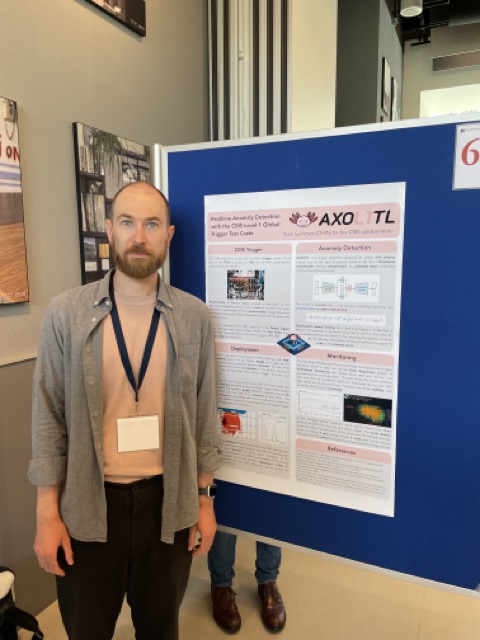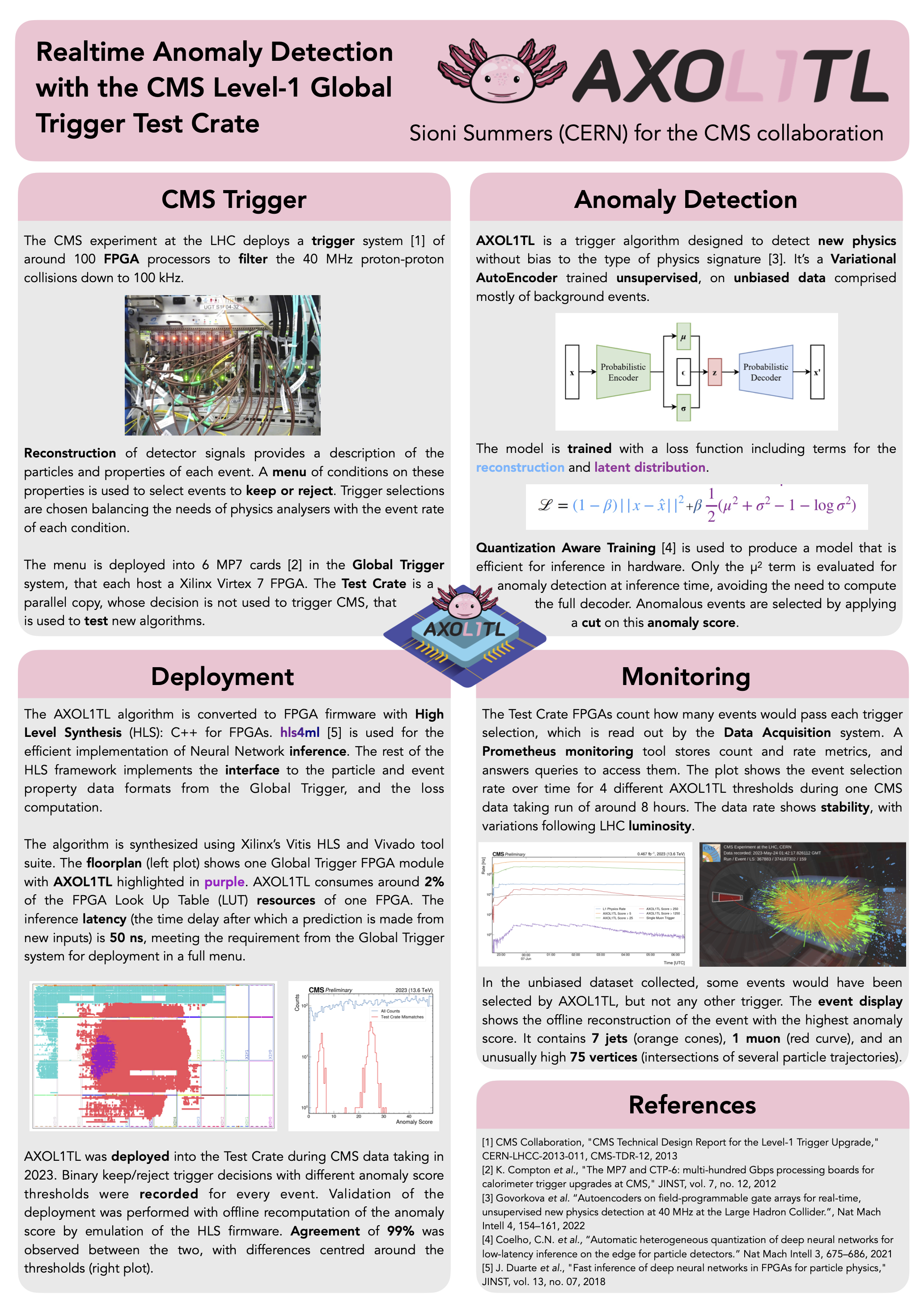EuCAIFCon
I presented a poster on Realtime Anomaly Detection with the CMS Level-1 Global Trigger Test Crate (aka AXOL1TL) at EuCAIFCon, Amsterdam. The AXOL1TL algorithm is a method to detect anomalous events at the Level-1 Trigger at CMS. It’s a tiny, quantized, Variational AutoEncoder trained unsupervised on “Zero Bias” data. By computing the loss (at least the majorly contributing term) for each event, we compute an anomaly score on which we can apply a threshold and trigger the full readout of the CMS detector. The method is designed to generically trigger on new physics signatures without targetting any specific final state.
AXOL1TL ran in the FPGAs of the CMS Level-1 Global Trigger Test Crate in 2023.
The creation of the FPGA firmware from the trained Neural Network was facillitated by 
- how stable the algorithm performance is
- how well our CPU emulation models the FPGA implementation
- which types of events are selected by AXOL1TL but excluded by the rest of the trigger menu
Here I am with the poster:

I enjoyed good discussions with other conference attendees during the poster session. On the one hand it’s good to share the work with other interested researches, and on the other hand there’s much we can learn from the community. Some of these conversations will surely prompt followup studies, collaborations, and possibly new projects on the realtime anomaly detection topic.
Besides presenting the poster, I profited from a stimulating, multidisciplinary conference on the important and very present topic of AI in fundamental sciences. Some of my personal highlights from the programme were:
- François Charton (Meta) on Methods for AI in Maths and Science
- Matthew Schwartz (Harvard) on Theoretical high-energy physics and AI
- Kyle Cranmer (University of Wisconsin, Madison) on AI in the Fundamental Sciences
I’m also excited to see the direction that this AI in the Fundamental Sciences community goes in Europe. There were many discussions in the questions after talks, and also the dedicated panels, about coordinating these efforts around the EuCAIF initiative.
Download the poster PDF here:

